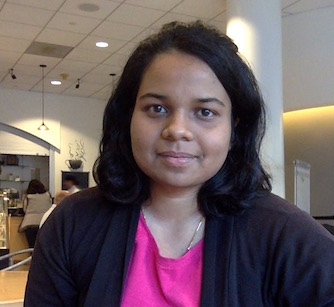Faculty Candidate Seminar
Human-Centric Machine Learning: Enabling Machine Learning for High-Stakes Decision-Making
Add to Google Calendar

Domains such as law, healthcare, and public policy often involve highly consequential decisions which are predominantly made by human decision-makers. The growing availability of data pertaining to such decisions offers an unprecedented opportunity to develop machine learning models which can aid human decision-makers in making better decisions. However, the applicability of machine learning to the aforementioned domains is limited by certain fundamental challenges:
1) The data is selectively labeled i.e., we only observe the outcomes of the decisions made by human decision-makers and not the counterfactuals.
2) The data is prone to a variety of selection biases and confounding effects.
3) The successful adoption of the models that we develop depends on how well decision-makers can understand and trust their functionality, however, most of the existing machine learning models are primarily optimized for predictive accuracy and are not very interpretable.
In this talk, I will describe novel computational frameworks which address the aforementioned challenges, thus, paving the way for large-scale deployment of machine learning models to address problems of significant societal impact. First, I will discuss how to build interpretable predictive models and explanations of complex black box models which can be readily understood and consequently trusted by human decision-makers. I will then outline efficient and provably near-optimal approximation algorithms to solve these problems. Next, I will present a novel evaluation framework which allows us to reliably compare the quality of decisions made by human decision-makers and machine learning models amidst challenges such as missing counterfactuals and presence of unmeasured confounders (unobservables). Lastly, I will provide a brief overview of my research on diagnosing and characterizing biases (systematic errors) in human decisions and predictions of machine learning models.
I will conclude the talk by sketching future directions which enable effective and efficient collaboration between humans and machine learning models to address problems of societal impact.
Hima Lakkaraju is a Ph.D. candidate in Computer Science at Stanford University. Her research focuses on enabling machine learning models to complement human decision making in high-stakes settings such as law, healthcare, public policy, and education. At the core of her research lie rigorous computational techniques leading to algorithmic contributions in machine learning, data mining, and econometrics. Hima has received several fellowships and awards including the Robert Bosch Stanford graduate fellowship, Microsoft research dissertation grant, Google Anita Borg scholarship, IBM eminence and excellence award, and best paper awards at SIAM International Conference on Data Mining (SDM) and INFORMS. Her research has been covered by various media outlets such as the New York Times, MIT Tech Review, Harvard Business Review, TIME, Forbes, Business Insider, and Bloomberg.
 MENU
MENU 
